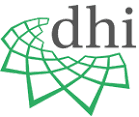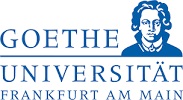It is with great pleasure that we present the new issue of «Annali.Reviews.Online» 2025/1, the digital journal of the Italian-German Historical Institute of the Fondazione Bruno Kessler.
We live in an era in which access to knowledge should be a universal right. With this spirit in mind, our journal was founded in 2018 as a space dedicated to the critical review of history books, freely accessible to everyone. We believe that historical knowledge should not remain confined within academic walls but should circulate freely, enriching public debate and providing tools to better understand the present through the past.
For this very reason, the Forum, curated by Paolo Costa and Andrea Pojer, is dedicated to a book intended for a broad audience: Controstoria dell’alpinismo by Andrea Zannini. As Paolo Costa points out: «These are extraordinary times for historians everywhere – interesting and disorienting years. Doubts about the very foundations of historical research are multiplying. The main concern is whether those who claim the authority to determine what really happened do so out of merit or rather out of power. Is it a matter of knowledge, or of class, gender, or racial dominance? There is a growing aspiration to recount human events with a reparative intent, positioning oneself at the margins of official history and reversing traditional hierarchies, such as that between colonizers and the colonized.»
Andrea Pojer highlights that «the value of Zannini’s study does not lie so much in the recontextualization of a rich variety of mostly printed or edited sources, which attest to and illustrate the daily use of the mountains in pre-modern times, but rather in the systematic deconstruction of that historical (self-)narrative through which the mountaineers of the late 18th and especially the nineteenth century claimed for themselves the first ascents and the conquest of the most important Alpine peaks.»
The reviewed book emerges within a nouvelle vague of historians who focus on “counter-discourses” and “counter-narratives”, often challenging the paternalism that has long relegated mountain territories to the margins of high culture.
In this issue, alongside the history of Alpinism, we also feature research on economic inequality and wealth distribution, studies on childhood and summer camps, the biography of Lina Merlin – one of the founding mothers of the Italian Constitution and a key figure in twentieth-century Italian politics – and peace missions in Lebanon.
The variety of historical periods and themes covered reflects the richness of this issue’s contributions, which stand out for their methodological quality, the relevance of the topics addressed, and the originality of their interpretations. As always, the books have been selected by the Editorial Board and assigned to experts in the field for critical reading, with the aim of providing a rigorous yet accessible analysis for a broad audience.
Enjoy this issue!
Katia Occhi





